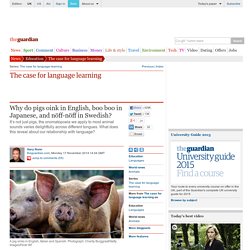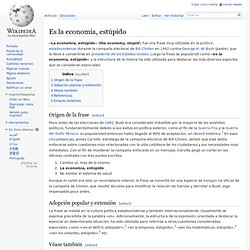

El origen de los idiomas, explicado en una preciosa infografía. Why do pigs oink in English, boo boo in Japanese, and nöff-nöff in Swedish? What goes boo boo in Japanese, chrum chrum in Polish, groin groin in French, hunk hunk in Kosovan and nöff-nöff in Swedish?

Clue: she may go by the name of Peppa, or demand to be called Miss. It is, of course, the pig who oinks in English, Italian and Spanish. In case you were wondering, it isn’t pigs that are multilingual, it’s us. The onomatopoeia we apply to animal sounds varies delightfully around the world. This diversity reflects the unique flavour and panache of different languages.
Just try, for example, not to smirk when you discover that dogs bau bau in Italian and guf guf in Spanish. Linguists widely dispute the origins of language. Despite this, there are only a handful of research studies into international animal onomatopoeia. In another fascinating and fun study, Professor Derek Abbott from the University of Adelaide produces one of the most extensive pieces of research into this topic. Read more stories: • What happens in the brain when you learn a language? Always #LikeAGirl. Linguistic imperialism: The world according to Putin. Language conflict: Johnson: Different tongues, common homes. IT’S not easy being a multilingual country.

But that is no excuse for making it harder on yourself. Shortly after taking power following the ousting of Victor Yanukovych, Ukraine’s new government made the unforced error of revoking a 2012 law which granted the Russian language an official status (alongside Ukrianian) in regions where Russian-speakers predominate. That was rash and unnecessary (but see the addendum below). There were already unsavoury right-wing goons alongside more decent Ukrainian nationalists calling for an end to Russian domination. The abrupt change in the language law—one of the interim government’s first acts—gave Vladimir Putin a convenient propaganda point: fascists are bent on eliminating all traces of Russian people, language and culture from Ukraine! Multilingual countries have it tough. This is all correlation.
It is legitimate for a newly independent country with a good claim on nation-statehood to promote its language. Es la economía, estúpido. «La economía, estúpido» (the economy, stupid), fue una frase muy utilizada en la política estadounidense durante la campaña electoral de Bill Clinton en 1992 contra George H.

W. Bush (padre), que lo llevó a convertirse en presidente de los Estados Unidos. Luego la frase se popularizó como «es la economía, estúpido» y la estructura de la misma ha sido utilizada para destacar los más diversos aspectos que se consideran esenciales. Origen de la frase[editar] Cambio vs. más de lo mismo.La economía, estúpido.No olvidar el sistema de salud. Aunque el cartel era solo un recordatorio interno, la frase se convirtió en una especie de eslogan no oficial de la campaña de Clinton, que resultó decisivo para modificar la relación de fuerzas y derrotar a Bush, algo impensable poco antes.
Differences among languages: True untranslatability. Y'all Vs. You All: Mapping The Linguistic Peculiarities Of American English. If language is the glue that holds cultures together, then examining the United States through that lens makes a complicated mess of traditional ways we divide up the country to generalize: whether it’s east versus west, north versus south, or, increasingly blue state versus red state.

A mapping project by statistics Ph.D. student Joshua Katz at North Carolina State University takes a visual look at significant differences in pronunciation and word choice that extend across the country, by plotting responses from more than 100 survey questions about dialectical variation on a heat map. The data was originally collected by the Cambridge linguist Bert Vaux, who asked respondents from around the country to pronounce words like “crayon” and “crawfish,” say which city is meant when someone says “The City,” or suggest how they refer to “you” in the plural. “Dr. Browsing the maps shows how many of the differences--and similarities--in the dialectical landscape are rather unexpected. Two Dozen 15,000-Year-Old Words We Still Use Today.
Language is flexible, fluid, and ever-changing--something we’re reminded every year when Merriam Webster adds words like "Bootylicious" to the dictionary.

But that evolution isn’t just a matter of new words being born; it’s about old ones dying, too. Until recently, linguists thought that a given word couldn’t expect to live much longer than 8,000 years. But now a team of researchers thinks it’s pinpointed two dozen words nearly twice that age--some 15,000 years old--and still very much in use today. Here’s the passage you need to write down and stick in your wallet, in case you fall through a wormhole and end up in Late Stone Age Nova Scotia: You, hear me! According to a study headed by Mark Pagel, an evolutionary theorist at England’s University of Reading, those 23 words mean the same thing, and sound roughly the same, as they did nearly 150 centuries ago.
And yet, they do. The Post has a neat interactive feature on how some of the words evolved. Words that last - Graphic. Analogy as the Core of Cognition. Steven Pinker: Linguistics as a Window to Understanding the Brain.